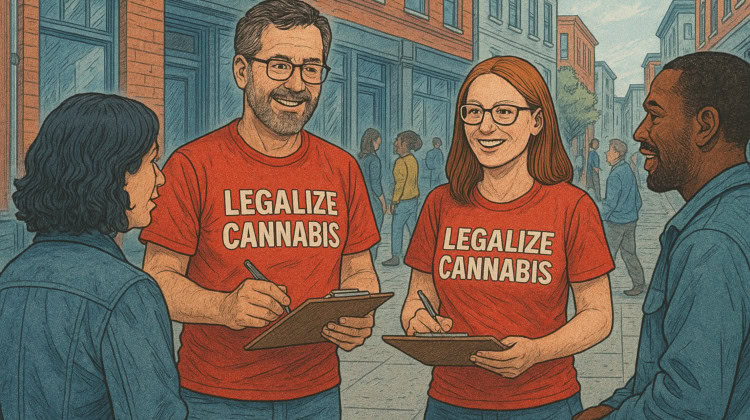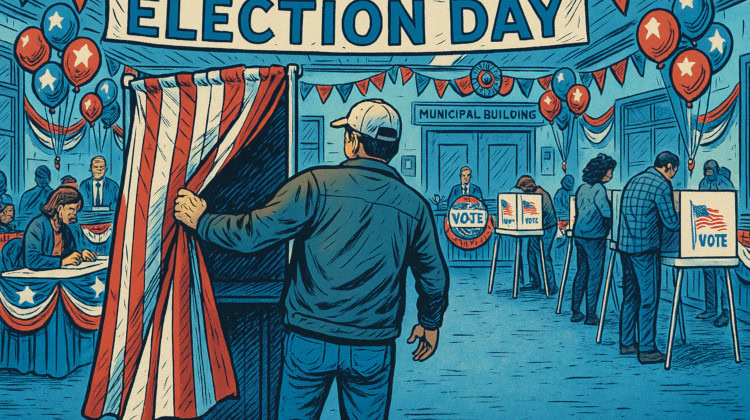Key Takeaways
- Cannabis policy reform efforts have been successful, but more work must be done.
- There are many ways to get involved in cannabis activism.
- Several groups lead the way on cannabis policy reform.
The successes in cannabis policy reform over the past several decades cannot be overstated. States first began decriminalizing cannabis in the 1970s, leading to the approval of the first state-level medical cannabis legalization measures in the 1990s.
The 21st century saw the passage of the first recreational cannabis legalization voter initiatives, starting in Colorado and Washington in 2012. Today, nearly half of the states have legalized cannabis for use by adults aged 21 and up, and in 2022, the Biden administration directed HHS and DEA to review cannabis scheduling.
But the work on cannabis reform is not yet finished. Ten states still have not legalized cannabis for medical use, and more than two dozen still prohibit recreational weed. Even in states that have legalized cannabis, bans on home cultivation or other restrictions prevent people from fully realizing the potential benefits of the plant.
Luckily, every American has the power to help advance progress in cannabis policy reform, both in their state and across the country.
The Top Ways to Get Involved in Cannabis Reform

Everyone who wants to help advance cannabis policy can get involved. One of the most important ways to influence policy is to research cannabis lawmakers and initiatives, then vote. But even those who can’t vote, for whatever reason, can have a say in our government and its policies.
All Americans are represented by lawmakers at the state (or territorial) and federal levels. Contacting your representatives in Congress and your state capitol is an excellent way to express your views on cannabis policy reform.
Several organizations are working at the state and federal levels to help advance cannabis policy reform, including legalization. Supporting these groups can help continue progress in your state and nationwide.
The Importance of Voting

Voting is one of the most essential ways to help further the cause of cannabis legalization. Many states (including those that first led the way) that have legalized cannabis have done so via voter-led initiatives, giving the electorate a direct say in whether weed is legalized in their state.
Voters also select the politicians who make decisions about cannabis policy reform at both the state and national levels. Educating yourself about candidates’ views on cannabis can help you elect representatives who will support reform.
To register to vote or update your voter registration, visit vote.gov or contact the registrar of voters for your area.
Contacting Your Representatives
Contacting your elected representatives can be one of the most effective ways to support cannabis policy reform. Most elected representatives in local, state, and federal governments welcome input from their constituents via multiple channels, including email, telephone, postal mail, and social media.
To contact your representatives, enter your address in the Find Your Representatives tool from Common Cause. The site lists contact and website information, plus links to social media profiles, for local, state, and federal elected officials.
Organizations Fighting for Legalization
Joining or donating to one of the nonprofit groups working for cannabis policy reform is another great way to support the cause.
The Marijuana Policy Project (MPP) and the National Organization for the Reform of Marijuana Laws (NORML) have been instrumental in the adoption of cannabis legalization measures in states across the country, and their work at the national level has contributed to the federal government’s ongoing assessment of cannabis policy. Additionally, Americans for Safe Access (ASA) has been the leading advocate for cannabis patient rights.
All of these groups offer information about cannabis policy on their websites and sponsor opportunities for activism, such as letter-writing initiatives and voter registration campaigns. State and local chapters in many areas provide opportunities to participate in grassroots activism.
Primary Obstacles and Issues in Cannabis Reform

Obstacles to Reform
The continued success of cannabis policy reform faces several obstacles. Perhaps most significant is the ongoing stigma against cannabis and cannabis users that often prejudices discussions on policy reform. Encouragingly, the stigma against cannabis is lessening as reforms take hold.
All cannabis consumers can help fight stigma by being honest about their use and the reasons behind it.
The lack of political will among politicians also impedes further progress on cannabis reform. Many lawmakers are reluctant to support change if they do not sense support for the issue from their constituents. Contacting your representatives can help nudge them toward progress.
Unfortunately, some businesses are also active obstacles to cannabis policy reform. Companies in the alcoholic beverage, pharmaceutical, and private prison industries have opposed legislation to legalize cannabis.
Top Issues in Cannabis Policy Reform
While the full legalization of cannabis for all adults at the federal level and in all states is the ultimate goal of most cannabis policy reform activists and groups, many other issues are linked to the cause. Even in states where cannabis has been legalized, further reform can help individuals get the most out of the plant.
- Several states with legal weed ban home cultivation or have restrictive plant limits that make it difficult for consumers to access cannabis.
- Others have restrictions on cannabis use in public that leave some patients, such as renters, without a legal place to smoke cannabis.
- In many states, employees or candidates for positions in the public sector or government jobs lack employment protections for cannabis patients.
Absent full legalization, there are issues at the federal level that can advance cannabis policy reform.
- Federal law restricts the gun rights of cannabis patients, even in states where weed is legal.
- Additionally, federal drug and money laundering laws make it difficult and costly for cannabis businesses to obtain standard banking services such as credit card processing and payroll accounts. As a result, dispensaries generally only accept cash, putting employees, customers, and the public at risk of robbery and other crimes.
Activism Works
The substantial progress in cannabis policy reform can be attributed to the work and dedication of activists intent on ending prohibition. Although there is still work to do, every cannabis consumer and freedom lover can support the cause in a way that works for them.
The information in this article and any included images or charts are for educational purposes only. This information is neither a substitute for, nor does it replace, professional legal advice or medical advice, diagnosis, or treatment. If you have any concerns or questions about laws, regulations, or your health, you should always consult with an attorney, physician or other licensed professional.




